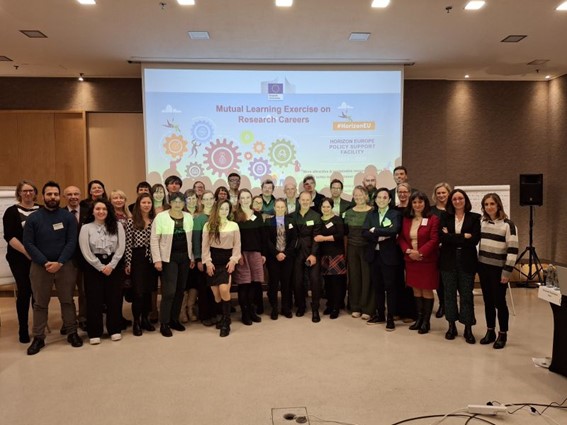Promoting the sharing of good practices among EU member states is the goal of the mutual learning exercise on more attractive and sustainable research careers and circulation of talents. INESC TEC is one of the two Portuguese entities that participate in this initiative – joined by the Foundation for Science and Technology (FCT) –, which addresses issues like recruitment, working conditions, career development and progression, design of policies that encourage more attractive research careers.
The Mutual Learning Exercise (MLE) on Research Careers, it is an initiative promoted by the European Commission, bringing together organisations from 16 countries. The idea is to support the entities involved in the implementation of the European Council recommendation on a European framework on how to keep, attract and retain research, innovation and entrepreneurial talents in Europe. This way, it is possible to improve R&I careers.
“By participating in this initiative, INESC TEC joins the EU’s vision of creating a competitive, favourable and sustainable environment for research careers. Our involvement in these discussions allows us to learn from other European countries, share our experiences and obtain contributions on the common challenges faced by other countries in talent attraction and working conditions, career development and progression, talents circulation and national/institutional relations,” explained Susana Rodrigues.
According to the INESC TEC researcher, who is also part of the institution’s Human Resources team, the collaboration with other entities have allowed INESC TEC to adapt the institution’s HR policies and boosting the creation of a strong research community. “We are committed to creating a dynamic, innovative and high-quality research ecosystem. The fact that our initiatives to promote people’s well-being and create a favourable work environment were included in the first technical report of the MLE is a clear example,” mentioned Susana Rodrigues. These include the creation of a support line and partnerships with mental healthcare offices, the promotion of training in this area, flexible working hours or the hybrid work model.
In addition, and within the scope of the discussion concerning the conditions to improve the attraction of R&D systems and the balanced circulation of talents, INESC TEC shared a case study that demonstrates the effective use of national policies to attract and retain research talent, illustrating how the Institute has aligned institutional practices with national research strategies and European objectives.
“Lessons learned from our participation in the MLE are being actively integrated into the institution’s new HR policies. Our compliance with European frameworks and tools – like ESCO, ResearchComp and CoARA – has played a key role in the clearer definition of research careers, and in the improvement of processes like performance evaluation, hiring and selection, training and development of researchers’ skills. By meeting the European standards, we are not only improving internal processes, but also contributing to the transformation of the European research ecosystem,” concluded the researcher.
The MLE addresses four main themes: recruitment, working conditions, career development and progression; skills and inter-sectoral, inter-disciplinary and interoperable careers; enabling conditions for attractive R&I systems and balanced circulation of talents; a conducive policy and legal context for attractive research careers, including incentives for the implementation of the Charter for Researchers; it started in June 2024, with an expected duration of 12 months.


 News, current topics, curiosities and so much more about INESC TEC and its community!
News, current topics, curiosities and so much more about INESC TEC and its community!